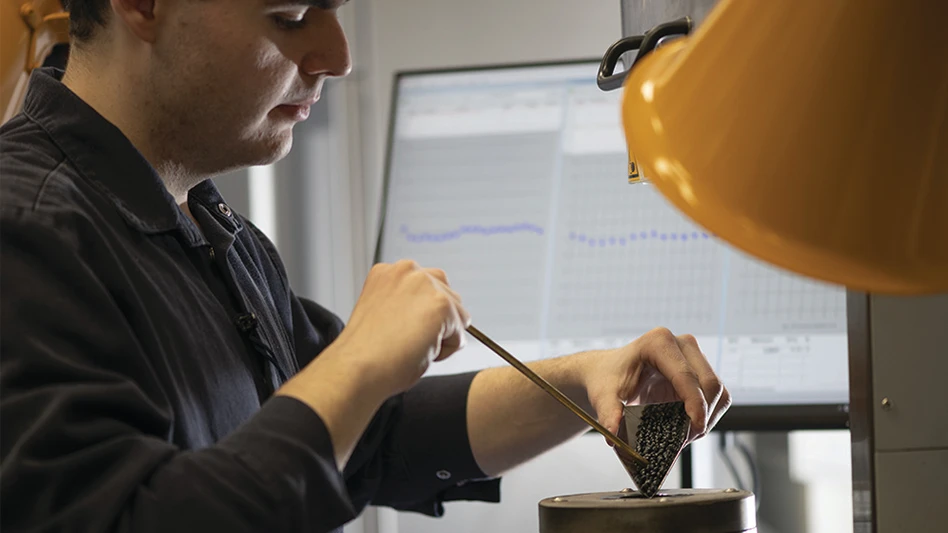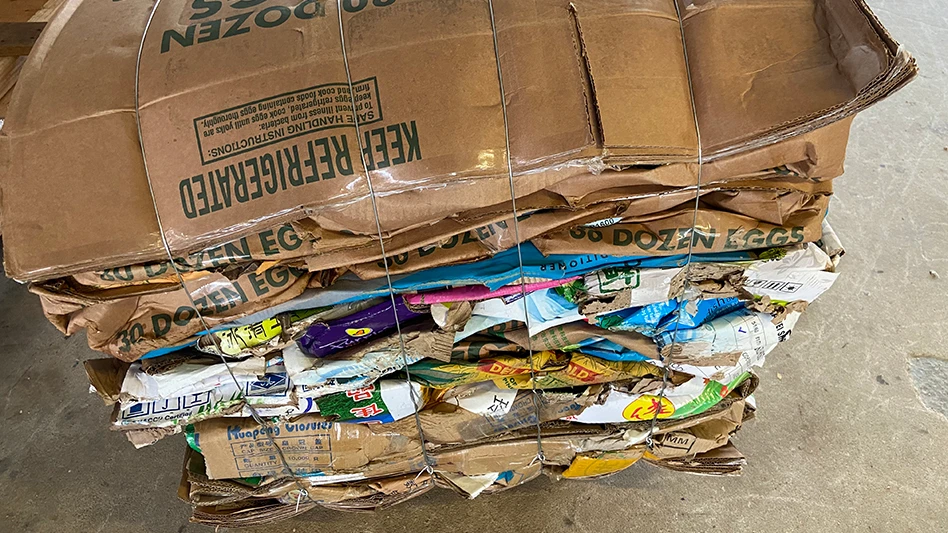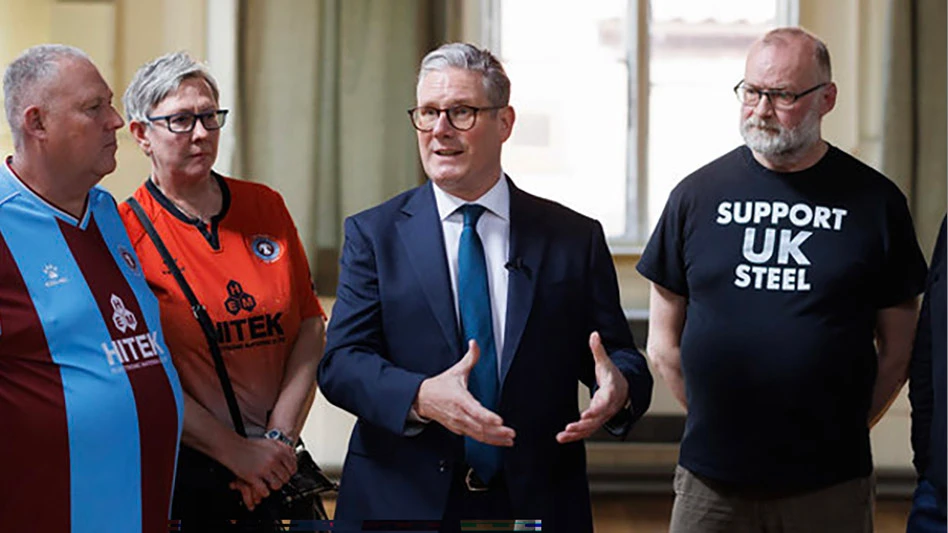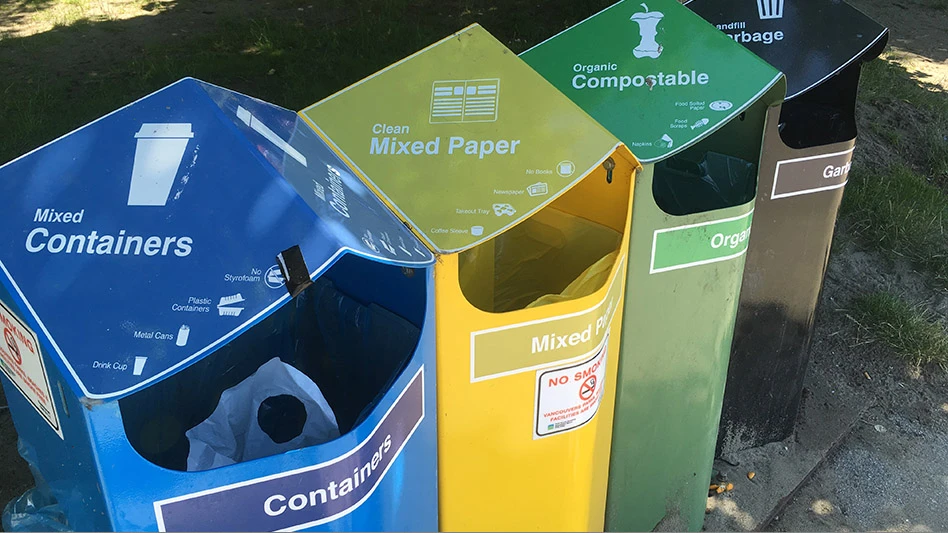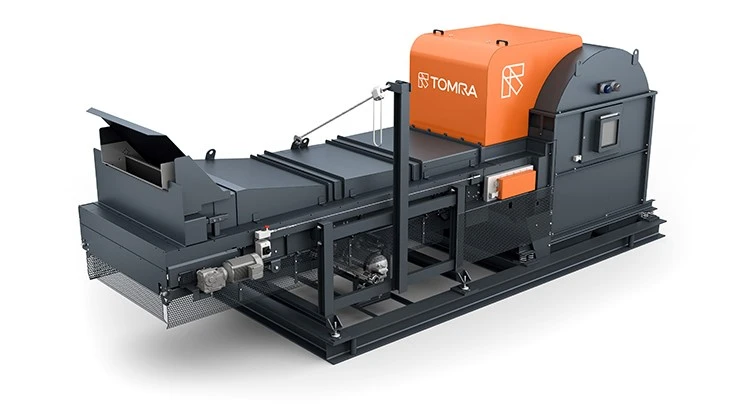
Asker, Norway-based Tomra Sorting Recycling has announced it will showcase its sensor-based sorting technologies at Aluminium 2018, the world trade fair and conference in Düsseldorf, Germany, Oct. 9-11. Tomra’s exhibition stand will spotlight the company’s X-tractT machine and laser-induced breakdown spectoscropy (LIBS) technology, the company says.
According to Tomra, the X-tract machine separates valuable materials from metal waste and LIBS technology sorts and separates different aluminum wrought alloys.
Aluminium 2018 is expected to attract more than 27,000 visitors from 100 countries and will share latest insights into aluminum production and processing, finished goods and recycling. Tomra’s technical experts will be available at its stand during all three days of the event.
Tomra says its participation at Aluminium 2018 allows the company to provide its own insight into technical solutions to industry challenges.
“High levels of aluminum production plus the high accuracy of modern alloy sorting techniques make it more and more worthwhile to unlock the value from secondary materials that would otherwise be lost,” Frank van de Winkel, Tomrasorting business development manager, metals, says. “What’s more, reusing scrap metal is an environmentally friendly practice, which demonstrates the industry’s commitment to sustainability. For these reasons we’re looking forward to discussing our technologies at Aluminium 2018 with recyclers, smelters and remelters.”
Tomra’s X-tract separates heavy metals from aluminum alloys with precision regardless of the materials’ size, moisture or surface pollution level, the company says. This technology employs an electric X-ray tube so broadband radiation can penetrate the material to provide spectral absorption information. This data is then measured with an X-ray camera to identify the atomic density of the material. Material is sorted into high- and low-density fractions with Tomra’s Duoline sensor technology that uses two independent sensor lines with different spectral sensitivities.
Tomra’s LIBS-based sensor sorting technology extends the options for the use of scrap and secondary aluminum. By employing a dynamic laser that can monitor the entire width of the belt, the unit eliminates the need to separate materials into single lanes, the company says. This enables the sorting and separation of different aluminum wrought alloys with high levels of efficiency, achieving sorting accuracies of 99 percent purity with high throughputs of 3 to 7 tons per hour.
Aluminium 2018 will also be an opportunity for recyclers, smelters and remelters to learn how Tomra designs its technical solutions to fit customer requirements. Tomra says more than 60 of its units have been sold worldwide for the separation of different scrap sources, such as taint tabor from sheet scrap, extrusion profile scrap, used beverage can scrap, production scrap and new scrap from manufacturing waste.
Latest from Recycling Today
- Commentary: How EPR is transforming the packaging industry
- Acerinox names new North American Stainless CEO
- Greenwave closes 2024 books with red ink
- Steel Dynamics nets $217M on record shipments
- Massive Chinese steelmaking rebound recorded in March
- LME looks into sustainable metal pricing
- OnePlanet Solar Recycling closes $7M seed financing round
- AMCS launches AMCS Platform Spring 2025 update

